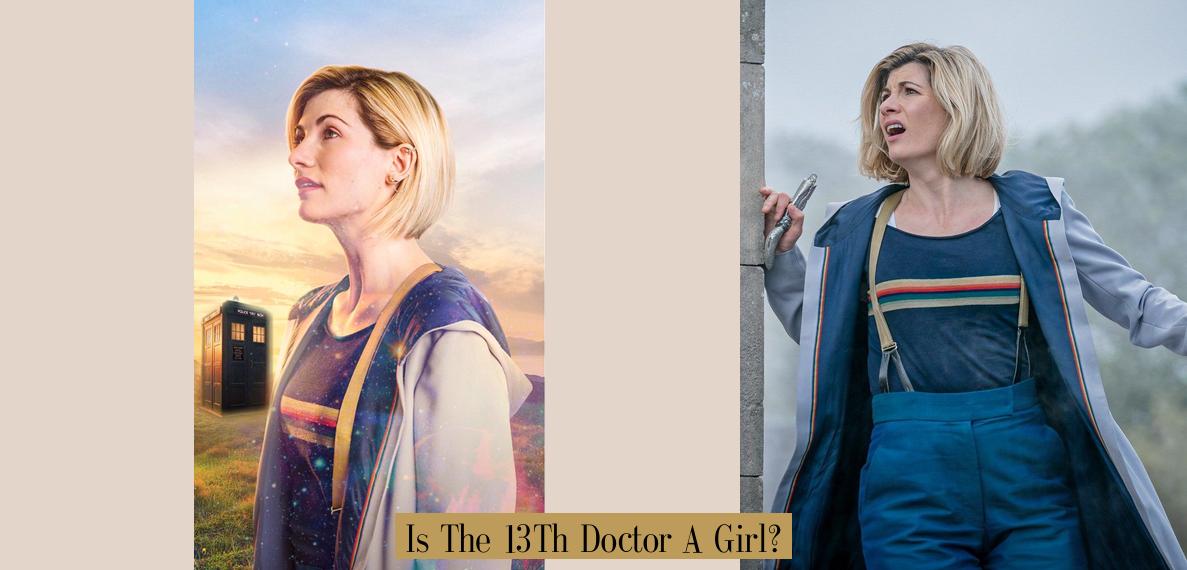Is the 13th Doctor a Girl? A Look at the Time Lord’s Gender Fluidity
Ah, the age-old question: Is the 13th Doctor a girl? Well, brace yourselves, because the answer is a bit more complicated than a simple “yes” or “no.”
Firstly, let’s address the elephant in the TARDIS – Jodie Whittaker, the amazing actress who brought the 13th Doctor to life, is indeed a woman. She was the first woman to portray the Doctor, and that was a monumental moment for the show. But does that mean the Doctor is a woman?
Not necessarily. Here’s where things get interesting. The Doctor, as a Time Lord, has a fascinatingly complex relationship with gender. You see, Time Lords can regenerate, and each regeneration can result in a different appearance, including a different gender.
Remember Missy, the Master’s female incarnation? The show has already established that Time Lords can switch genders, so the 13th Doctor being a woman isn’t some groundbreaking revelation. It’s just another chapter in the Doctor’s ever-evolving story.
Now, let’s talk about the Doctor’s personal identity. It’s important to remember that the Doctor is a being who exists outside the confines of traditional gender labels. The Doctor has never explicitly identified as male or female, and the show has been deliberately ambiguous about the Doctor’s gender.
In fact, the 13th Doctor’s characterization reinforces this. She’s a quirky, adventurous, and compassionate individual, with a strong sense of justice and a touch of playful mischief. These qualities aren’t inherently masculine or feminine; they’re simply the Doctor being the Doctor.
So, while the 13th Doctor is portrayed by a woman, it’s more accurate to say that the Doctor is a being who transcends gender. The Doctor is a symbol of unity, embodying the potential for change and embracing the spectrum of human (and Time Lord) experience.
A Brief History of the Doctor’s Gender Fluidity
The concept of the Doctor changing gender is not a new one. In the 1980s, the show’s creator, Sydney Newman, even suggested that the Doctor should change gender if the series were to continue.
And then, there was the iconic Comic Relief sketch in 1999 where Joanna Lumley played a female Doctor. This was a playful nod to the potential for the Doctor to be female, and it set the stage for Whittaker’s groundbreaking casting in 2017.
It’s also worth noting that the Doctor’s gender fluidity has been hinted at in the show’s history. Some stories suggest that even in bodies that presented as male, the Doctor didn’t necessarily identify as “a man.”
This kind of ambiguity is what makes the Doctor so fascinating. The Doctor is a character who challenges our preconceptions about gender and identity, reminding us that life is more complex and nuanced than we often assume.
The 13th Doctor’s portrayal has been a significant step forward in representing gender diversity in popular culture. It’s a testament to the show’s willingness to evolve and embrace the complexities of human (and Time Lord) identity.
The Importance of Gender Fluidity in Doctor Who
The Doctor’s gender fluidity is not just a plot device; it’s a powerful statement about the importance of inclusivity and representation. By embracing the Doctor’s gender fluidity, the show sends a message that everyone, regardless of their gender identity, can be a hero, a leader, and a force for good in the universe.
The Doctor’s journey is one of constant change and transformation. This includes the ability to regenerate into different forms, including different genders. This reinforces the idea that identity is fluid and ever-evolving.
The 13th Doctor’s portrayal has sparked important conversations about gender and representation in popular culture. It’s served as a reminder that we should be open to challenging our assumptions about gender and embracing the diversity of human experience.
The Doctor’s journey, with its focus on exploration, kindness, and compassion, is a testament to the fact that we can all be heroes, regardless of our gender identity.
Beyond the 13th Doctor: A Look at the Future
The 13th Doctor’s tenure has come to an end, and the 14th Doctor, played by Ncuti Gatwa, is ready to take the reins of the TARDIS. While the 14th Doctor identifies as a man, the show’s embrace of gender fluidity allows for the possibility of future Doctors who may identify as women, non-binary, or genderfluid.
The future of Doctor Who is as uncertain and exciting as ever. The show continues to evolve, reflecting the changing world around us, and the Doctor’s journey is just beginning.
So, is the 13th Doctor a girl? The answer is not as simple as it seems. The Doctor, in their ever-evolving form, transcends traditional gender labels. The Doctor is a symbol of unity, a testament to the power of change, and a beacon of hope in a universe full of possibilities.
